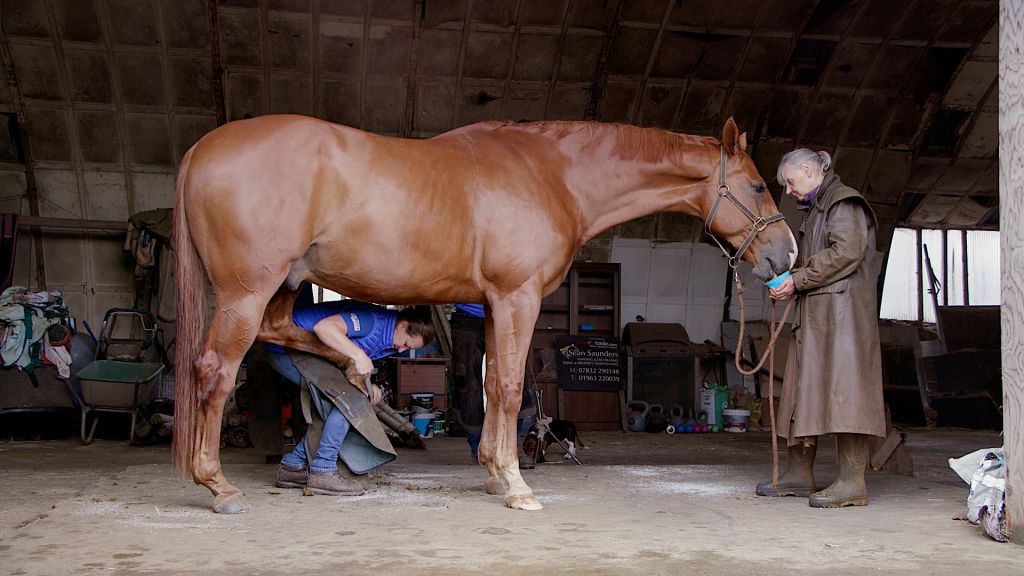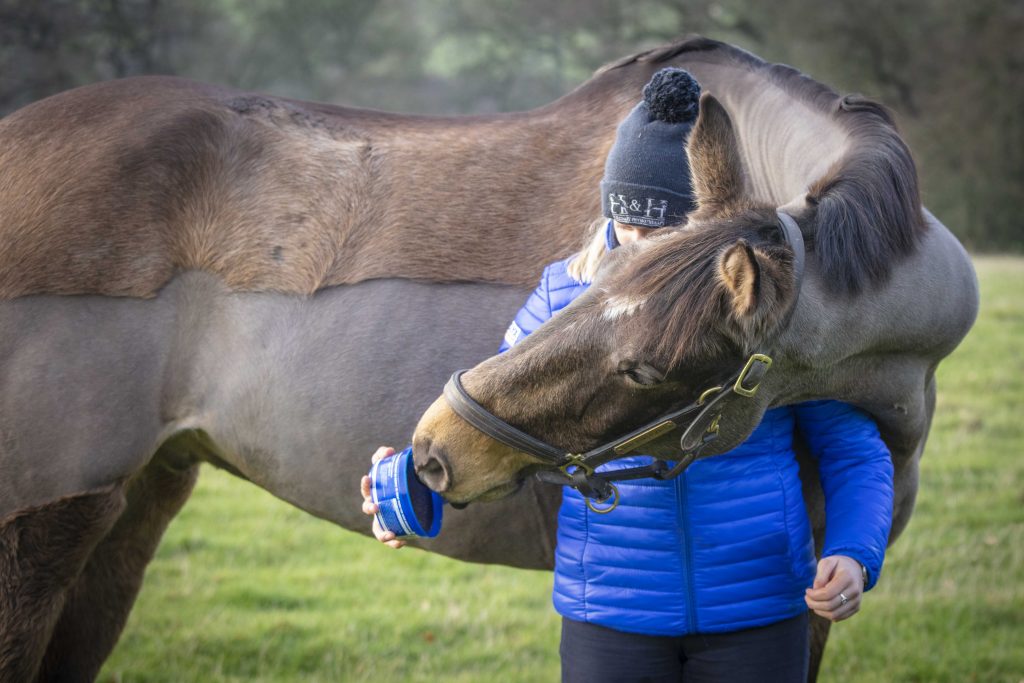In the depths of winter we were all looking forward to spring and drier ground and getting our horses and ponies out of the mud to meet friends, go to events and shows and our biggest worry was when would the ground dry up enough for events to run. Unfortunately, no one suspected that a new virus could disrupt the whole world in such a short time and few of us had heard of Covid-19 in mid-January.
These are troubling times, especially if you are classed as one of the vulnerable and have to self-isolate, however if you have horses, ponies or other animals which rely on you for their health and wellbeing then this can add to the worry of how you keep yourself safe from the virus while caring for the animals in your care.

There is no reason why you can’t still ride if you are keeping well and you are in an area where you can work your horse, however it is prudent to be aware of what you are doing with your horse and try to avoid anything that may be too challenging as we do not want to overload the health system who are doing a great job in challenging circumstances and they do not need us equestrians littering A&E with injuries! If you are on a yard with other people around bear in mind the social distancing as advised by the government means trying to avoid contact with other people, so no cuppas in the tack room for a catch up and keeping at least 2m from everyone else, ensuring good hygiene by washing hands correctly, and frequently, especially after using shared yard equipment such as wheelbarrows and hoses, using hand sanitiser if hand washing facilities are unavailable and avoiding touching your face with your hands.. Though, if at any point you start to display any symptoms then you must self-isolate and stay at home for 14 days (present advice 18/3/20).
So what do we need to think about? Well the BHS have produced some great advice for horse owners in the current situation and a lot of it is very easy to put in place. Ideas like a buddy system so that you know who can look after your horse if you are self-isolating are straightforward and easy to carry out, however remember to check if anyone handling your horse has insurance just in case!
It is likely that if you keep your horse or pony on a yard, then your yard owner will have a contingency plan already in place. This is the ideal opportunity to write your own management plan so that your yard owner and emergency contact know what to do in all situations. Ensure that your management plan covers everyday routines including feeding, worming and any medications as well as what to do in an emergency plus seasonal issues such as laminitis care or sweet itch preparation. For the full article and advice please follow this link https://www.bhs.org.uk/advice-and-information/coronavirus-covid-19
It is likely that over the coming months your horse will need treatment from some outside people, whether that may be the farrier, vet or a physio. As advised by our Farrier Ambassador, Abby Bunyard, they are taking every precaution that they can, and in return please advise them of any issues as together everyone will be able to work through this. Communication is key, talking about any issues before the visit starts so that a plan can be put in place to ensure that the welfare of both people and equines are looked after.
At the moment riding is not restricted however it’s reported that some countries have put in place a blanket ban on all riding activities to save undue pressure on their health systems, so if you have a fit horse at present consider lightening the workload over the coming weeks ready for possible roughing off, remembering to adjust feeding as you go, as a fit horse is unlikely to take to being a field ornament very well. If you are already restricted from riding or are feeling downhearted that competitions are off, then this is the time to work on your relationship with your horse. So much can be done from the ground, whether that is lunging, long reining or groundwork exercises and even stretching exercises to keep them in good health. If you are still able to ride, then maybe consider getting a schooling plan together so you get those basics nailed before heading out fully prepared when life returns to normal. Harriet Beecroft, registered veterinary physiotherapist has provided some great videos with stretching exercises on which you can do at home with a Mini Horslyx and we have some fabulous 30 minute schooling plans from our Ambassadors Amy and Vikki Smith to work on at home. 
Remember that you don’t need to panic buy anything, for your horse or yourself! However, it would be advisable not to wait until the last minute before re-stocking. Many feed stores are now providing delivery or click and collect services if you have concerns about visiting the store. Speak to your supplier to see what options they are offering. At Horslyx we have already stopped non-essential personnel visiting our manufacturing site to ensure that production can continue, so there should be no problems with the supply chain. Remember, if you are doing less work with your horse or pony then for many equines a diet of Horslyx plus forage provides all the vitamins, minerals and trace elements required to balance their diet and ample calories. This is an easy-care option which is cost effective and may help remove one or two of the worries you may have in the coming months.

What is also really important is to look after your own health and wellbeing, so you are in a good place to care for those dependent upon you, whether equine, canine, human or any of the other options out there. Depending on the nature of your worries there are many options of support out there, whether it’s calling your best friend on facetime so you get to see them, calling a helpline to give mental health support or getting in touch with Citizens Advice for financial support, please don’t suffer in silence.
Stay well everyone and we’ll be here to see you all on the other side with healthy, happy horses.
With very best wishes,
